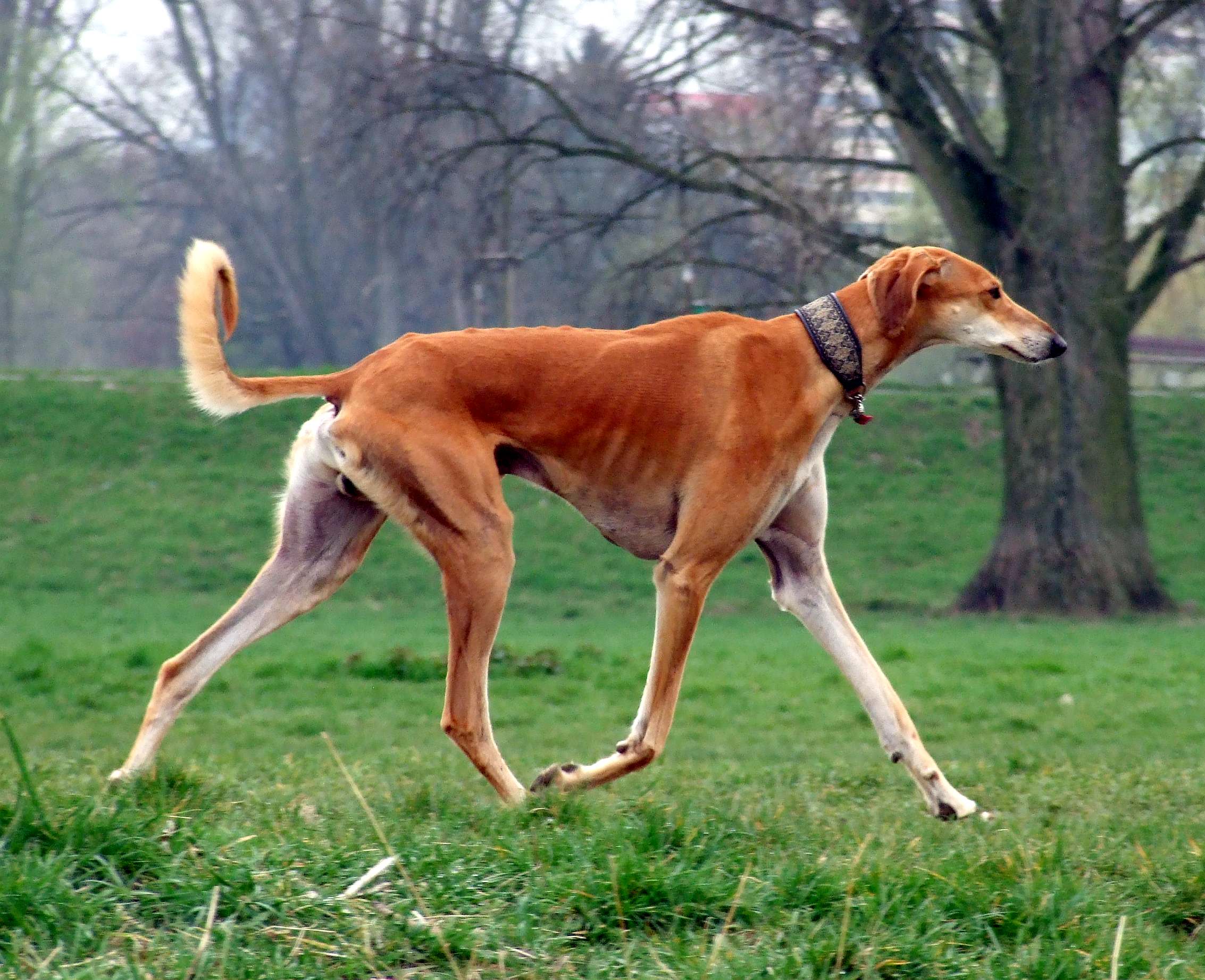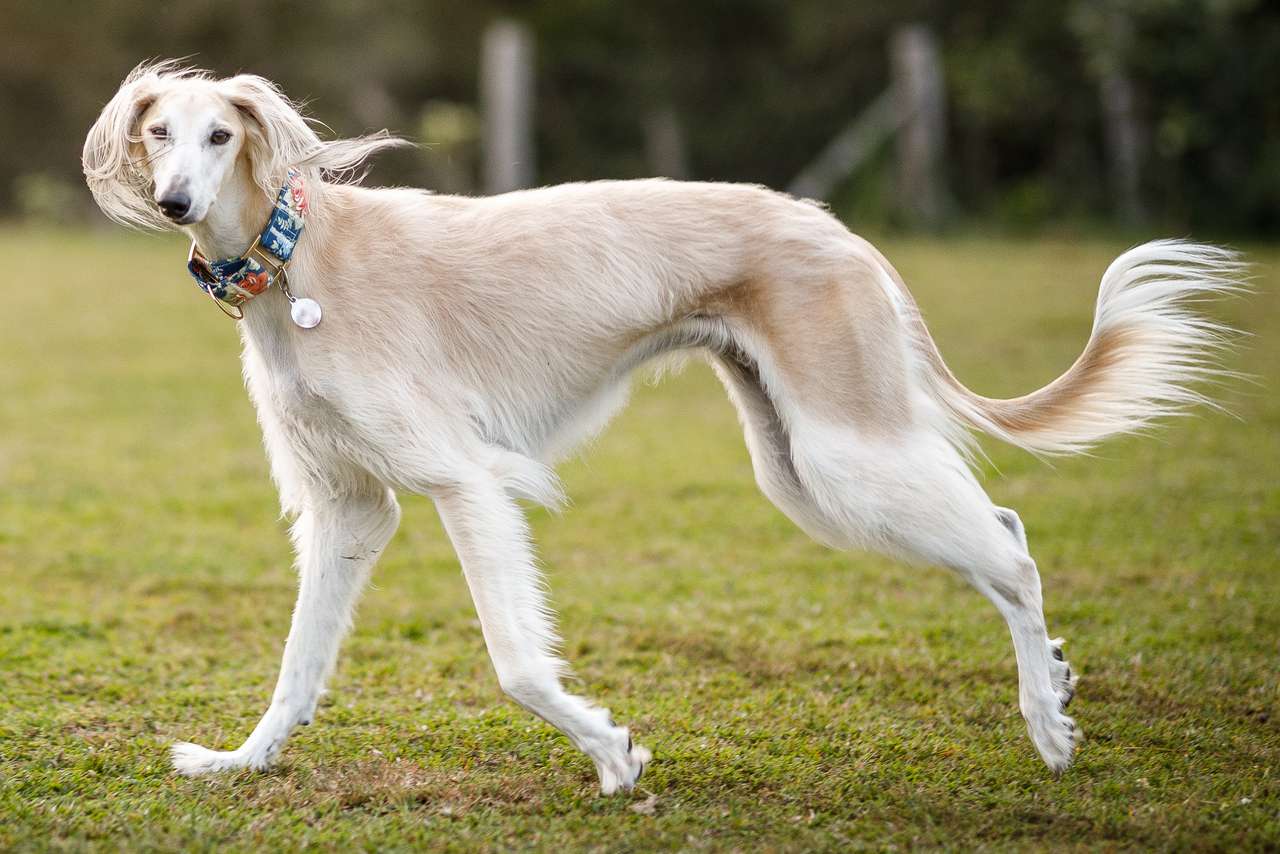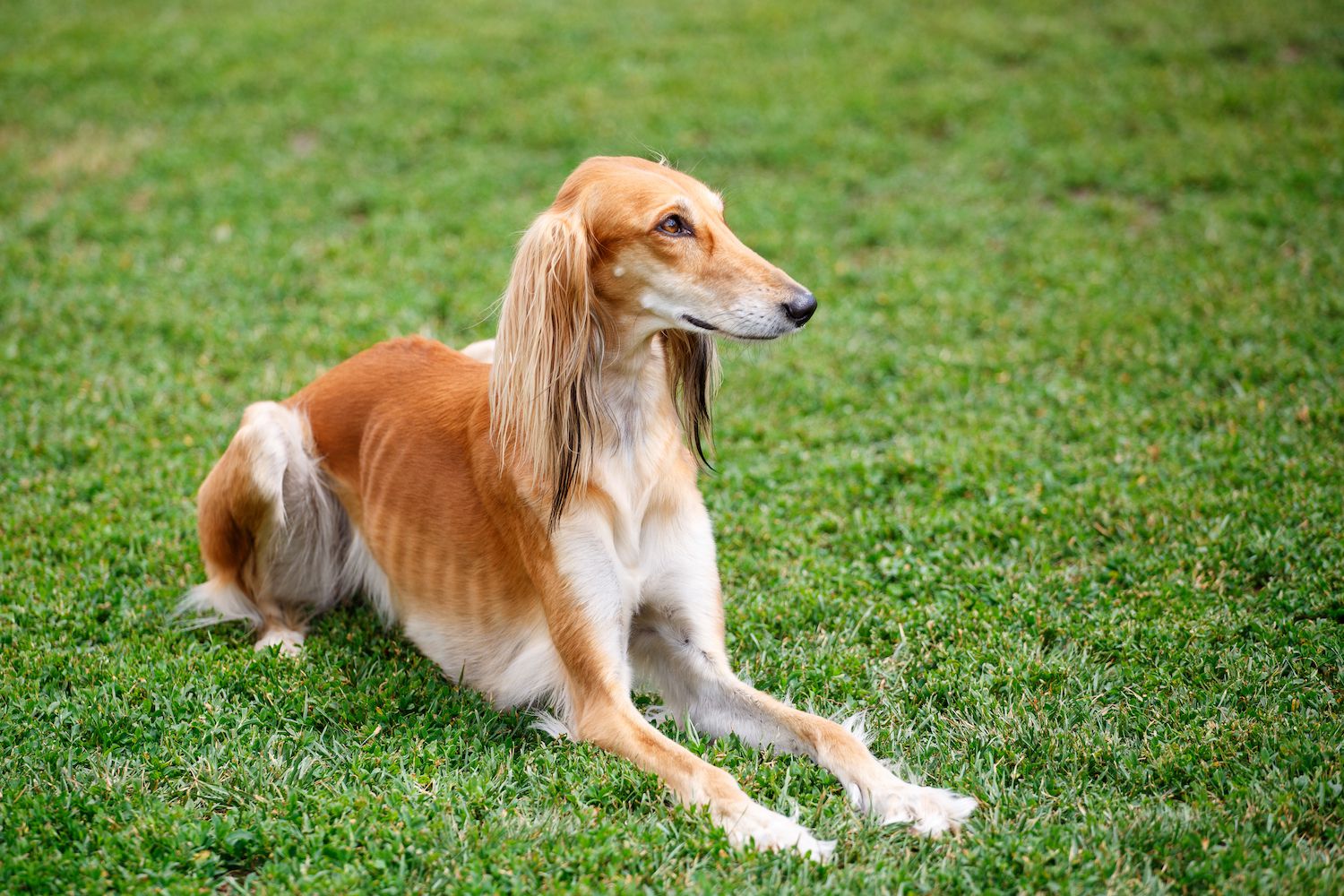
The Saluki is one of the oldest known dog breeds, with origins tracing back more than 5,000 years to the ancient Middle East. Revered by ancient Egyptians, Salukis were often mummified and depicted in tomb art as noble companions. They were prized by nomadic Bedouins for their speed, endurance, and hunting prowess, used to chase down game such as gazelle across harsh desert landscapes.
Often referred to as the "Royal Dog of Egypt," the Saluki's association with nobility and its refined beauty have helped preserve its legacy into modern times.
Though not as mainstream as some breeds, the Saluki maintains a devoted following among enthusiasts who appreciate its elegance and rich history. Its popularity is stronger in the Middle East and parts of Europe, but it is slowly gaining recognition in North America and other regions for its grace and affectionate nature.
Salukis are often showcased at dog shows, admired for their unique combination of athleticism and aristocratic appearance.
The Saluki is an elegant, lean hound with a distinctive appearance that reflects its incredible speed and stamina.
• Height: 23–28 inches (58–71 cm)
• Weight: 35–65 pounds (16–29 kg)
• Build: Slender, athletic, and finely boned
• Coat: Two varieties—smooth or feathered (longer hair on ears, tail, and legs)
• Color: Wide range including white, cream, fawn, red, grizzle and tan, black and tan, and tricolor
• Head: Long and narrow with a slight stop
• Eyes: Large, oval, and dark, with a gentle, far-seeing expression
• Ears: Long and hanging close to the head, often with silky feathering
• Tail: Long and carried low with a slight curve, often feathered
The Saluki’s streamlined body is built for high-speed chases, combining grace with athleticism.
The Saluki is known for being gentle, reserved, and independent-minded, often forming deep bonds with its family.
• Affectionate: Bonds closely with family but tends to be reserved with strangers.
• Independent: Retains strong hunting instincts; can be aloof at times.
• Sensitive: Responds best to gentle handling and positive reinforcement.
• Energetic: Requires regular exercise to stay physically and mentally fit.
• Quiet: Not prone to excessive barking; usually calm and dignified indoors.
Salukis carry a quiet dignity, preferring peaceful environments and human companionship over chaos or roughhousing.

The Saluki is ideal for:
• Active individuals or families who enjoy running or long walks
• Those looking for an elegant, low-shedding companion
• Homes with large, securely fenced yards
• People who appreciate a more reserved, sensitive pet
However, it may not be ideal for:
• Apartment living without sufficient outdoor activity
• Families wanting a highly biddable or eager-to-please dog
• Owners looking for a traditional guard dog or high-energy player
Salukis require special care to meet their physical and emotional needs.
• Exercise: Daily vigorous exercise is essential—Salukis love to run.
• Training: Gentle, consistent methods work best; avoid harsh corrections.
• Grooming: Minimal; occasional brushing to maintain coat health.
• Living Environment: Ideally a home with a large, fenced yard.
• Feeding: High-quality food appropriate for active, lean dogs.
Due to their speed and prey drive, Salukis should not be allowed off-leash in unfenced areas.
Salukis are generally healthy but can be susceptible to specific conditions:
• Heart disease
• Eye disorders
• Hypothyroidism
• Anesthesia sensitivity due to low body fat
Their typical lifespan ranges from 12 to 14 years, making them relatively long-lived for a larger breed.

• Greyhound: Both breeds are fast and lean, but Salukis tend to be more aloof and sensitive.
• Afghan Hound: The Afghan Hound is similarly elegant but has a more profuse coat and a more exuberant personality.
• Whippet: Smaller and more adaptable to apartment life than the Saluki, though both are sensitive and affectionate.
If you are looking for a dog that combines ancient nobility with modern grace, and you can offer plenty of exercise and patience, the Saluki may be your perfect match. They thrive in calm, loving environments where their independent spirit is respected.
Potential owners should be ready for a dog that may not always seek attention but forms profound, loyal bonds once trust is established.
Prospective owners should seek out reputable breeders who screen for heart and eye conditions, or consider adoption through breed-specific rescues. Salukis thrive best in homes that understand and respect their unique needs.
United Pet Club can assist with resources like microchip registration and health monitoring to help ensure a long, vibrant life for your Saluki.